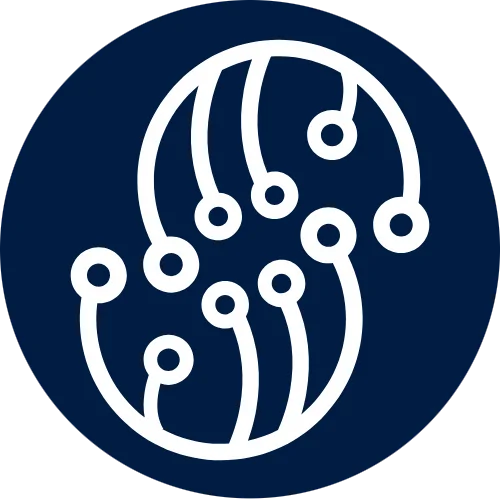AI Agents have rapidly evolved from a niche concept to a transformative technology across industries. By 2025, AI-powered autonomous agents are expected to reshape enterprise operations, customer service, and automation workflows. However, while market potential is vast, technological and adoption challenges remain.
This report explores the latest industry forecasts, emerging trends, economic impact, and challenges that will shape the AI Agent ecosystem in 2025 and beyond.
1. AI Agents: From Concept to Market Reality
(1) AI Agents Enter the Enterprise Mainstream
- According to Deloitte, 25% of enterprises using generative AI will integrate AI agents by 2025, a figure expected to grow to 50% by 2027.
- Gartner predicts that by 2028, at least 15% of daily work decisions will be autonomously made by AI agents.
- By 2025, 33% of enterprise software applications will incorporate AI Agent capabilities.
Interpretation:
AI Agents are no longer just an experimental technology but a critical component of enterprise AI strategies.
Early adopters will gain a competitive edge, while late adopters risk falling behind in automation efficiency.
(2) AI Agents Expand Beyond IT & Finance
While AI Agents were initially concentrated in IT and financial services, 2025 will see rapid adoption across multiple industries:
- Healthcare: AI-driven patient interaction, automated diagnostics, and administrative automation.
- Retail & E-Commerce: AI-powered customer service chatbots, automated pricing optimization, and inventory forecasting.
- Manufacturing & Supply Chain: AI Agents handling real-time logistics, predictive maintenance, and workflow automation.
- Telecommunications: Automating customer support, troubleshooting network issues, and optimizing service plans.
Interpretation:
AI Agents are transitioning from general-purpose chatbots to industry-specific intelligent solutions.
Adoption will be driven by cost savings, efficiency improvements, and demand for real-time automation.
2. Market Growth & Economic Impact
(1) AI Agent Market Valuation & Growth Rate
- The global AI Agent market is expected to grow from $5.1 billion in 2024 to $47.1 billion by 2030, at a CAGR of 44.8%.
- By 2026, over 70% of enterprises will allocate a portion of their AI budgets to AI Agent development and integration.
Interpretation:
The AI Agent industry is one of the fastest-growing segments within the AI economy.
The shift from large language models (LLMs) to agent-based solutions is driving new business models and revenue streams.
(2) AI Agent Monetization Models
Companies are exploring multiple AI Agent monetization models:
- Subscription-Based AI Agents: Enterprises will increasingly pay monthly fees to access AI-driven automation tools.
- Pay-Per-Task Models: AI Agents handling specific business tasks (e.g., generating reports, automating workflows) will be billed per use.
- AI Agent-as-a-Service (AIaaS): AI Agents will be available as pre-built solutions on cloud platforms.
Interpretation:
Businesses will transition from investing in standalone LLMs to purchasing AI Agent-powered automation tools.
The AIaaS market could become as impactful as SaaS (Software-as-a-Service).
3. The Evolution of AI Agent Capabilities
(1) AI Agents Will Become More Autonomous
- Current AI Agents are mostly rule-based or human-assisted, but 2025 will see the rise of fully autonomous AI Agents.
- AI Agents will move from “reactive assistants” to proactive problem solvers, anticipating business needs and autonomously executing tasks.
- AI Agents will become capable of self-improvement, refining their strategies through reinforcement learning.
Example:
Instead of waiting for users to request a financial report, an AI Agent will proactively analyze trends and alert decision-makers.
(2) AI Agent Collaboration Will Become the Norm
- Future AI Agents will not operate in isolation but will collaborate with each other, handling multi-agent workflows.
- Large enterprises will deploy interconnected AI agents handling tasks across departments, from HR automation to supply chain optimization.
Interpretation:
AI Agents will evolve from single-use chatbots into interconnected networks, enhancing workflow efficiency and decision-making.
4. Challenges Facing AI Agent Adoption in 2025
Despite strong growth, the AI Agent market faces several key challenges:
| Challenge | Impact on AI Agents |
|---|---|
| AI Hallucinations & Errors | AI Agents still generate incorrect or misleading outputs, requiring human oversight. |
| High Costs of Development & Deployment | Training, fine-tuning, and deploying AI Agents require significant resources. |
| Security & Privacy Risks | AI Agents handle sensitive business data, raising concerns over cybersecurity & compliance. |
| Limited User Trust & Adoption | Businesses are hesitant to fully automate decision-making without human validation. |
Interpretation:
The AI Agent industry must overcome reliability, security, and cost barriers to achieve widespread adoption.
Hybrid AI models (AI Agents working alongside human operators) will dominate until full automation is viable.
5. Future Predictions: What to Expect Beyond 2025?
(1) AI Agents Will Be Integrated into Every Digital Platform
- AI Agents will become a core feature in enterprise ERP, CRM, and cloud platforms.
- Microsoft, Google, and AWS will integrate AI Agents into their cloud ecosystems, making them accessible across industries.
Prediction:
By 2027, AI Agents will be as common as cloud computing tools, embedded within every major enterprise software suite.
(2) AI Agents Will Specialize in Industry-Specific Tasks
- AI Agents will no longer be general-purpose assistants but will be trained for specific industries:
- Legal AI Agents will handle contract drafting & compliance monitoring.
- Financial AI Agents will assist in risk assessment & fraud detection.
- Medical AI Agents will focus on diagnostics & personalized healthcare.
Prediction:
Industry-specific AI will outperform generic AI Agents, leading to highly specialized AI Agent ecosystems.
(3) AI Regulation Will Shape Market Growth
- Governments will introduce new AI compliance laws requiring:
- Transparency in AI decision-making.
- Limitations on AI autonomy in high-risk industries (e.g., finance, healthcare).
- Stronger cybersecurity measures for AI-driven automation.
Prediction:
By 2026, regulatory frameworks will dictate which AI Agents can be used in specific industries.
6. References
Here are some key sources and research reports referenced in this analysis:
- Deloitte Global 2025 AI Predictions
Deloitte.com - Gartner AI Agent Market Trends 2025-2028
Analytics Vidhya - NVIDIA AI Industry Predictions 2025
Nvidia Blogs - AI Agent Market Growth Forecast 2024-2030
All About AI - The Future of AI Agents in Enterprises
Salesforce AI Trends
AI Agents are no longer just a concept—they are becoming a necessity for enterprise efficiency and automation. 2025 will be a pivotal year, marking the transition from basic AI assistants to truly intelligent, proactive digital agents. 🚀

